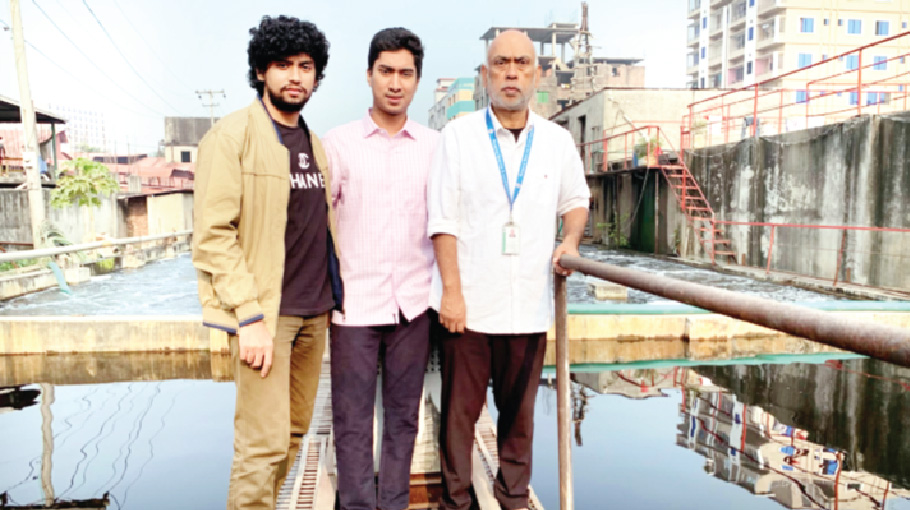Sustainable textile innovation to save resources and environment

The Department of Civil and Environmental Engineering at North South University has spearheaded an innovative project that introduces a cost-effective and sustainable technology for treating textile wastewater. This breakthrough initiative aims to produce treated water of high quality that can be reused, contributing to environmental conservation.
The research showcases the potential of employing locally available bleach and blast furnace iron slag for tertiary treatment. The outcome is treated wastewater that meets the standards outlined in the Environmental Conservation Rules of 2023, rendering it suitable for reuse in the wet processing of textiles, according to a recent press release.
This pioneering approach holds great promise, particularly for economies such as Bangladesh, where a substantial 84% of foreign earnings stem from the textile and readymade garment industry. By utilizing materials found within the local supply chain, this method breaks away from reliance on imported chemicals and energy, presenting a sustainable solution for economies constrained by limited resources. Moreover, by repurposing the treated water, the industry can diminish its dependence on groundwater extraction, a valuable resource that is currently depleting. The pilot implementation of this approach was carried out within an operational textile facility.
The research concept garnered significant recognition, receiving the Best Paper Award at two international conferences. The first accolade was granted at the 2nd International Symposium on One Health, One World, a collaborative effort by the One Health One World Research Initiative, the University of Tokyo in Japan, and the University of Dhaka. The second recognition came from the 4th International Conference - Strategies toward Green Deal Implementation - Water, Raw Materials & Energy. This conference, organized by The Division of Biogenic Raw Materials at the Mineral and Energy Economy Research Institute, Polish Academy of Sciences, in collaboration with the Ministry of Climate and Environment, Republic of Poland, the National Centre for Research and Development, and Polish Waterworks, The Chamber of Commerce.
The entire experiment was conducted by recent graduate students Md. Sahil Rafiq and Mohammad Shakhawat Hosen Apurba from the Department of Civil and Environmental Engineering at North South University. The project was supervised by Dr. Nadim Reza Khandaker, a Professor in the same department.


